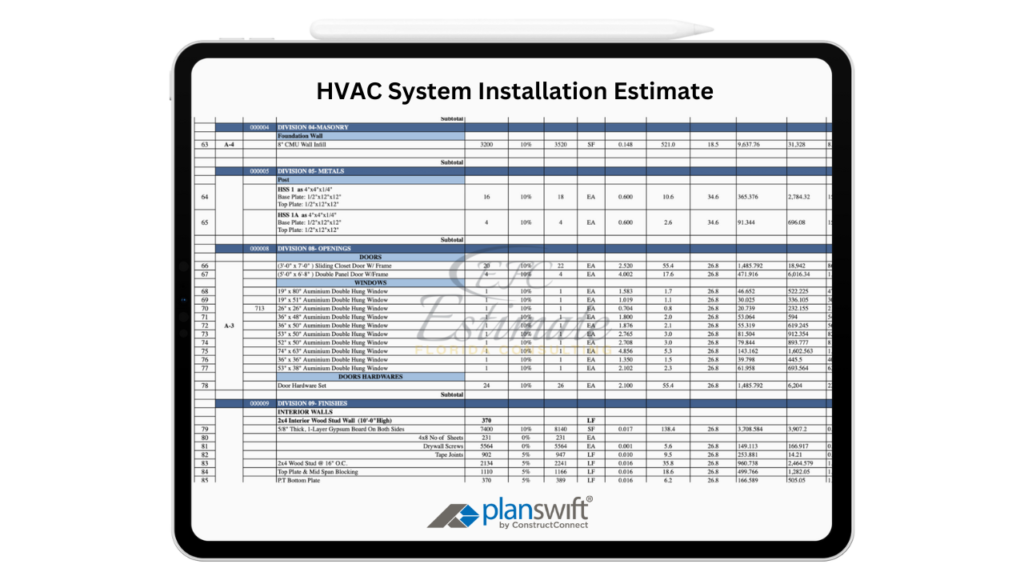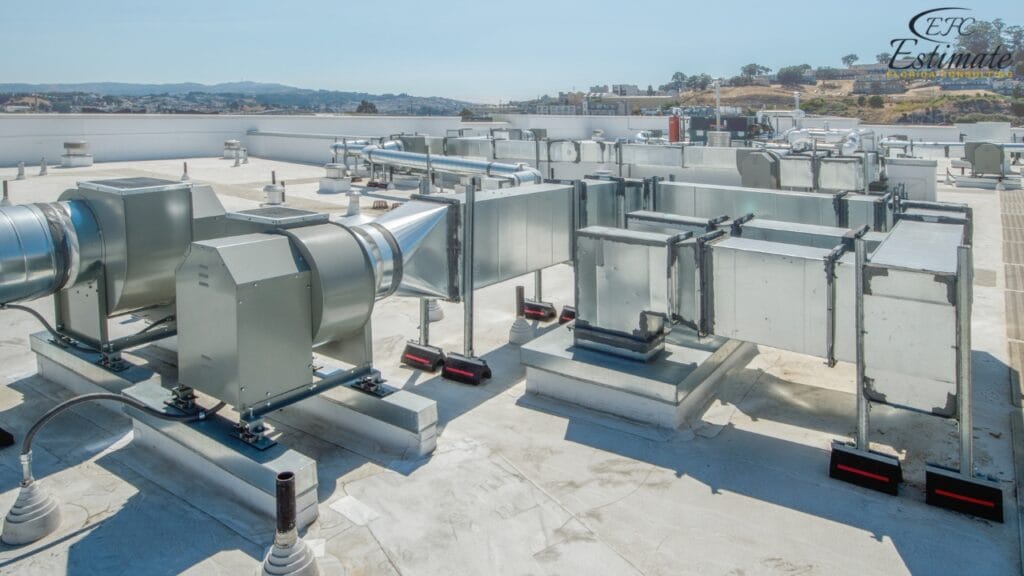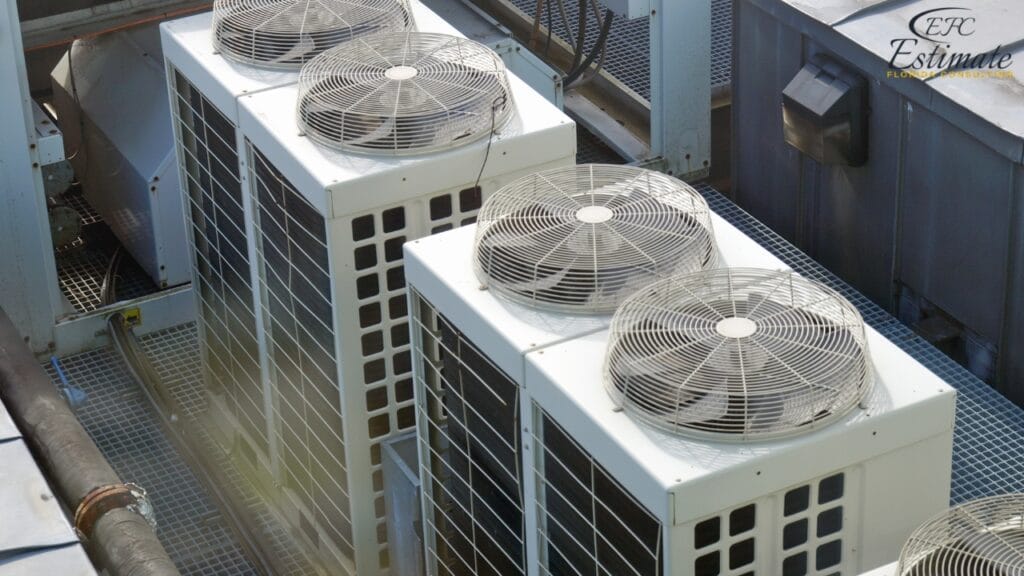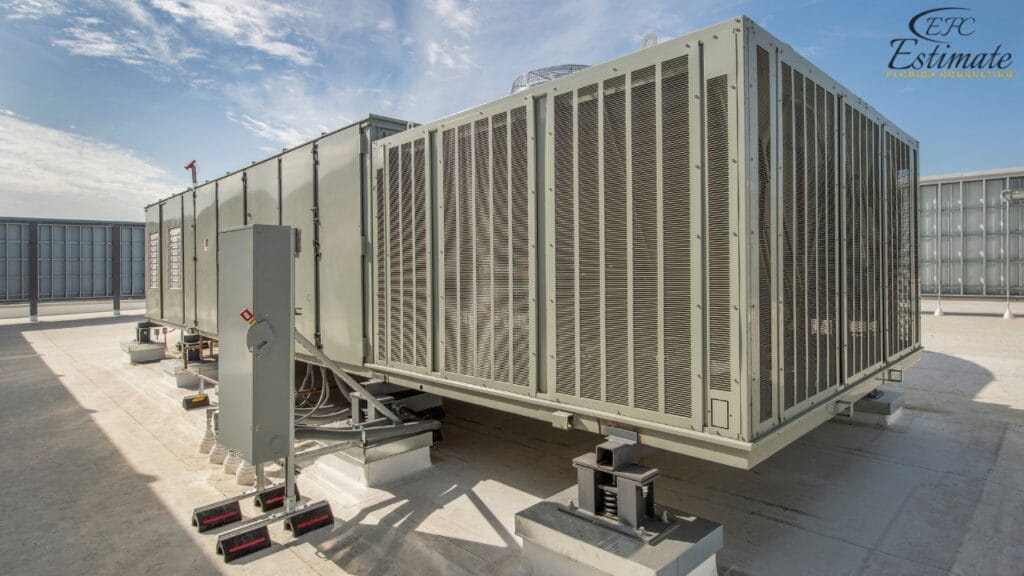90% More Chances to Win Projects With Our Estimate!
- Multi-Family Building
- Hotel Building
- Hospital Building
- Warehouse Building
- School & University Building
- High-Rise Building
- Shopping Complex
- Data Center Building

When it comes to HVAC installation for airports, several factors influence the overall cost, including system type, size, and complexity of the installation. As a leading provider of estimating services in Florida, Estimate Florida Consulting understands the unique challenges and requirements involved in airport HVAC systems. This blog will delve into the essential aspects of airport HVAC installation costs, offering detailed estimates and insights for general contractors, subcontractors, material suppliers, developers, homeowners, and others involved in airport construction projects.

Understanding the various factors that influence HVAC installation costs is essential for accurate budgeting and project planning. Below are key considerations that play a critical role in determining overall installation expenses.
The type of HVAC system selected is a primary factor in determining installation costs. Here’s a breakdown of average costs associated with different HVAC systems:
HVAC System Type | Average Cost (Including Installation) |
Chilled Water Systems | $15,000 – $33,000 |
Variable Air Volume (VAV) Systems | $11,000 – $27,500 |
Dedicated Outdoor Air Systems | $22,000 – $44,000 |
Heat Recovery Systems | $11,000 – $22,000 |
Installing HVAC systems in airports can be complex due to unique architectural features, zoning requirements, and the need for compliance with safety regulations. Installation complexity can lead to increased labor costs, often estimated to be 20-30% higher than standard installations. Factors such as existing ductwork conditions, required modifications, and the need for specialized equipment can also contribute to higher installation costs.
The overall installation complexity may also vary based on the specific location of the HVAC units within the terminal, whether on the roof or inside the building, as well as the integration of the HVAC system with other building systems such as fire safety and security.
The costs associated with air conditioning systems can vary significantly based on the type of system you choose for your data center. Here’s a breakdown of the different types of air conditioning systems:
Custom features, such as advanced control systems, energy recovery ventilators, and high-efficiency filters, can significantly add to the cost. These enhancements may range from $5,500 to $22,000 depending on the specifications and requirements of the project. Additional components, such as air quality sensors and smart thermostats, also contribute to the overall cost but can provide significant savings and improvements in operational efficiency over time.
To provide a clearer picture, let’s delve into the typical cost breakdown of an airport HVAC installation project:
Labor costs can vary based on project complexity and location. Expect to pay around 30% of the total installation costs for labor. This cost factor includes not just installation but also potential troubleshooting and adjustments needed after the system is operational.
Airports require specific permits and inspections that can add an additional $1,650 – $5,500 to the overall project cost. These fees cover necessary regulatory compliance and are an essential part of ensuring the installation meets safety and environmental standards.
Considering all factors, the total cost for an airport HVAC installation can range significantly. Here’s a summary:
Cost Category | Estimated Cost |
Equipment Costs | $55,000 – $330,000 |
Labor Costs | 30% of Total Costs |
Permits and Inspection Fees | $1,650 – $5,500 |
Total Estimated Cost | $110,000 – $660,000+ |
Understanding further costs involved in airport HVAC systems can aid in thorough budgeting and planning.
Regular maintenance is vital for prolonging the life of HVAC systems and maintaining efficiency. Budgeting for maintenance can range from $1,500 to $5,000 annually, depending on system complexity and size. Preventive maintenance can help avoid costly repairs and ensure systems operate optimally.
Airports typically have high energy demands, with HVAC systems representing a significant portion of utility expenses. Energy costs can vary widely based on system efficiency, local energy rates, and usage patterns. Expect to budget $20,000 to $50,000 annually for energy costs associated with HVAC operations in larger airports.

As systems age, planning for eventual replacement is crucial. Depending on the type of system and usage, replacement can be expected every 15-20 years. Setting aside a budget for future replacements can help alleviate financial burdens when the time comes. The estimated replacement costs may range from $50,000 to $200,000, depending on system type and complexity.
Depending on the unique needs of an airport, additional components may be necessary, such as:
Component | Estimated Cost |
Air Purification Systems | $15,000 – $30,000 |
Humidification Systems | $10,000 – $25,000 |
Monitoring Systems | $5,000 – $15,000 |
These components are essential for maintaining air quality and comfort in high-traffic areas, particularly in modern airports focusing on passenger experience.
Energy-efficient HVAC systems can significantly reduce operational costs, which is particularly crucial for airports that operate 24/7. By investing in systems with high SEER (Seasonal Energy Efficiency Ratio) ratings, airports can save on long-term energy bills. This reduction in costs can amount to thousands of dollars annually, making energy-efficient systems not only beneficial for the environment but also for the airport’s bottom line.
Many airports are now focused on sustainability and minimizing their carbon footprint. Implementing energy-efficient HVAC systems helps meet environmental regulations and can enhance the airport’s overall reputation. Airports that prioritize green building initiatives often qualify for various incentives and grants, further offsetting costs associated with installation and operation.

In addition to financial benefits, energy-efficient HVAC systems improve passenger comfort and air quality. By effectively managing humidity levels and providing consistent temperatures, airports can enhance the overall passenger experience, encouraging repeat travel and positive reviews.
Airport HVAC (Heating, Ventilation, and Air Conditioning) systems are designed to ensure optimal air quality, temperature control, and overall comfort within airport terminals. These systems must meet stringent safety and performance standards due to the high traffic and diverse environments within airports. A well-functioning HVAC system enhances the passenger experience by maintaining comfortable temperatures, ensuring proper humidity levels, and providing clean, fresh air, all of which are vital for the health and well-being of travelers and airport personnel.
Moreover, the complexity of airport operations necessitates the integration of advanced technology in HVAC systems. Airports often experience fluctuating occupancy levels, requiring systems that can dynamically adjust to changes in demand while maintaining efficiency. This dynamic capability is crucial for minimizing energy consumption, especially given the substantial energy costs associated with running large airport facilities.
There are several types of HVAC systems commonly used in airports, each designed to address specific needs:

Choosing the right contractor for your airport HVAC installation project is crucial. Here are key factors to consider:
Ensure that the contractor has extensive experience in commercial HVAC installations, particularly in airport settings. They should be familiar with the unique requirements and challenges associated with airport HVAC systems.
Research the contractor’s reputation by checking online reviews, testimonials, and references. A reputable contractor should have a proven track record of successfully completed projects.
Request detailed estimates from multiple contractors, including a breakdown of labor, materials, and any potential additional costs. Comparing multiple quotes ensures competitive pricing and helps avoid hidden fees.
Consider contractors that offer warranties on both equipment and installation services. This warranty provides peace of mind and ensures that any potential issues will be addressed without additional costs.

Estimating the costs of HVAC installation for airports requires careful consideration of various factors, including system type, terminal size, installation complexity, and the overall project budget. As a trusted provider of estimating services in Florida, [Your Brand Name] is committed to helping general contractors, subcontractors, material suppliers, developers, homeowners, and others navigate the intricacies of airport HVAC projects. By understanding the nuances of airport HVAC systems and working with experienced professionals, stakeholders can achieve efficient, reliable, and cost-effective solutions tailored to their specific needs.
The cost of HVAC installation at airports is influenced by several factors, including the type of HVAC system selected (e.g., chilled water, variable air volume, dedicated outdoor air, heat recovery systems), the size of the airport terminal, the complexity of the installation, and any additional features or customizations required.
The average cost for installing a chilled water HVAC system ranges from $15,000 to $33,000. However, the total cost can vary based on specific project requirements and the terminal's size.
For a 50,000 square foot airport terminal, the estimated HVAC installation cost is between $110,000 and $330,000, depending on the chosen system and installation complexity.
Installation complexities can increase labor costs by 20-30% compared to standard installations. Factors such as existing ductwork conditions, necessary modifications, and the integration of HVAC systems with other building systems all contribute to higher labor expenses.
Custom features like advanced control systems, energy recovery ventilators, and high-efficiency filters can add significantly to the installation cost, ranging from $5,500 to $22,000 based on specifications and requirements.
Annual maintenance costs for airport HVAC systems can range from $1,500 to $5,000, depending on system complexity and size. Regular maintenance is essential for prolonging the life of the systems and maintaining efficiency.
Investing in energy-efficient HVAC systems can lead to substantial savings on operational costs, potentially amounting to thousands of dollars annually. Efficient systems also help airports meet sustainability goals and enhance passenger comfort.
Replacement costs for HVAC systems in airports can range from $50,000 to $200,000, depending on the system type and usage. Planning for eventual replacement is crucial for managing future financial burdens.
Permit and inspection fees for airport HVAC installations typically range from $1,650 to $5,500. These fees are necessary for regulatory compliance and ensuring that installations meet safety and environmental standards.
At Estimate Florida Consulting, we offer detailed cost estimates across all major trades, ensuring no part of your project is overlooked. From the foundation to the finishing touches, our trade-specific estimates provide you with a complete and accurate breakdown of costs for any type of construction project.

We take pride in delivering accurate, timely, and reliable estimates that help contractors and builders win more projects. Our clients consistently praise our attention to detail, fast turnaround times, and the positive impact our estimates have on their businesses.
Estimate Florida Consulting has helped us win more bids with their fast and accurate estimates. We trust them for every project!

Submit your project plans, blueprints, or relevant documents through our online form or via email.
We’ll review your project details and send you a quote based on your scope and requirements.
Confirm the details and finalize any adjustments to ensure the estimate meets your project needs.
Receive your detailed, trade-specific estimate within 1-2 business days, ready for your project execution.

561-530-2845
info@estimatorflorida.com
Address
5245 Wiles Rd Apt 3-102 St. Pete Beach, FL 33073 United States
561-530-2845
info@estimatorflorida.com
Address
5245 Wiles Rd Apt 3-102 St. Pete Beach, FL 33073 United States
All copyright © Reserved | Designed By V Marketing Media | Disclaimer